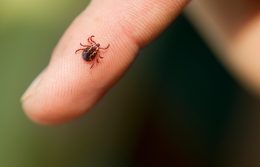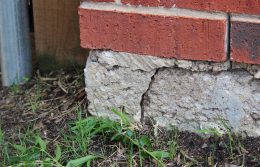The Cowboy Camp Leaders
Ask outsiders what they think Texans are like, and they’ll tell you of chaps-clad, dust-covered men and women, who, when you ask if they’re going for a ride, assume you mean on a horse.
Unfortunately, while this is certainly representative of the Lone Star State, these men and women are becoming an endangered species.
However, in the nooks and crannies of our great state reside people like champion bareback rider Clint Cannon and his brother, Kirby, who are trying to bring back the cowboy culture with their bareback riding style and school that’s spreading this rodeo culture to a younger generation.
“Now you can drive around all over Houston and, heck, all over Texas,” says Clint. “And unless you go to a small town, you won’t see a cowboy hat.”
A Rodeo Résumé
Clint, whose professional bareback riding résumé includes five-time Wrangler National Finals Rodeo qualifier and two-time RAM National Circuit Finals Rodeo qualifier, created the Southeast Texas Bareback Riding School in 2007, which is a free, four-day camp for kids that runs every fall. With 60 kids bucking more than 200 horses per day, the school teaches the basics — and how to overcome their fears.
Keeping the Cowboy Culture Alive and Well
“The sport of bareback riding and just being a professional rodeo cowboy, in general, is dying, and it’s hard to find kids tough enough, so you have to search them out.”
Bareback riding is different from saddle riding in that there’s no thick rein for the rider to grasp; instead he or she must clutch a molded piece of leather. In addition, the rider must show an immense display of skill, balance, and coordination, as there’s no saddle to compensate for errors in balance, making it one of the most physically demanding events in the rodeo.
This can sound daunting to even the most hardened rodeo participant, but Clint and Kirby are both sold on its importance to keeping the cowboy culture alive and well.
Building a Future Foundation
But this grit and toughness is just part of the equation — these youngsters need opportunities, too. That’s where the Mini Bareback Riding World Championship, founded by Kirby, becomes an important part of a young cowboy’s maturation.
The Mini Bareback Riding World Championship is essentially a peewee rodeo run on miniature horses and bulls.
“It’s full-scale, rough-stock rodeo,” Clint says, which culminates at an annual junior finals in Las Vegas.
“My brother and I didn’t have opportunities like this, and if you can change one kid’s life and guide them in a good direction, you’re doing something good,” Clint says.
In short, the Southeast Texas Bareback Riding School gives youngsters the chance to pick the brain of real Texas cowboys who understand the importance of keeping this culture alive and well. After all, it is an important part of the very fabric of our great state.
An attendee might leave with a few nicks, bruises, and sore muscles to boot, but they just might walk away a real cowboy, too.
If you want to learn more about some real cowboys across the state of Texas, be sure to check out “Lone Star Ropers” in our latest edition of Texas Heritage for Living magazine, a feature on ropers Lee “Boogie” Ray and his daughter McKenzie.
© 2017 Texas Farm Bureau Insurance



